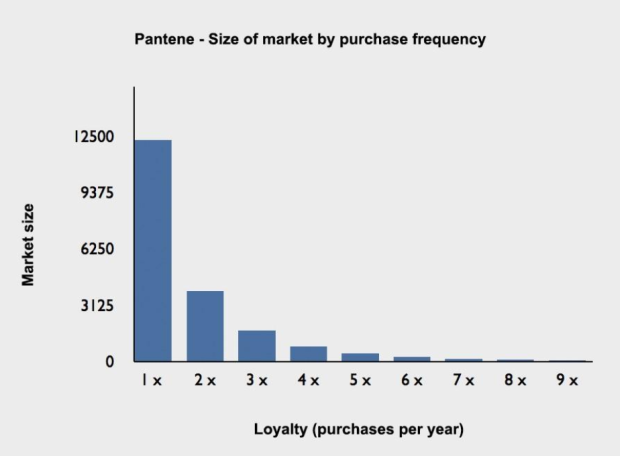
Can Marketing Theory Help Labour Rebuild?

The election result has been miserable for Labour. As they go into their ‘period of reflection’ the party will need to think differently about what it might take to win in the future. Can marketing theory help?
I wrote a piece back in 2016, which used marketing thinking to bear on the problems facing the then new Labour leader.
In short, while Corbyn’s core support was very solid, he needed to bring voters in the middle ground onside – people who were not even that interested in politics. They are what an FMCG marketer might call ‘light buyers’.
I suggested that to get these light buyers to vote Labour, the party needed to have culturally relevant positioning, bring a coalition of influential collaborators with them, speak to voters well beyond their echo chamber and use data to guide their messaging.
Looking back to the election that followed in 2017, Corbyn actually did much of this.
He tapped into a genuine cultural moment (remember Pyramid stage at Glastonbury?). He brought a load of leading personalities with him and really spread his message far and wide, taking it personally to the whole country. And, in 2017, Labour were widely seen to have used social media extremely effectively, in a much more loose, authentic way than their rivals.
As it turned out, Labour had a pretty good election, getting 40% of the vote, its highest share since 2001.
Only trouble was that the Tories had an even better one, getting 42.4% of the vote, its highest share since 1983.
The upside down
Three years on, and going into this election, the situation was quite different. In fact, almost reversed.
Back in 2017, Corbyn was personally popular but with an unknown programme of works ahead of him.
In 2019, Corbyn’s personal approval ratings were at an all-time low. In fact, the worst approval rating ever received by a Labour or Conservative leader, according to Ipsos Mori (-60 compared to Boris Johnson's +2)
But Labour policies – free broadband, renationalising the railways, putting workers on company boards, introducing a wealth tax – were broadly popular.
A small majority of voters believe that no-one deserves to have personal wealth of £1 billion, and a large majority would support moves to tax the super-rich more and stop billionaires in the UK from avoiding tax, according to YouGov.
Unbelievable
So, at the heart of Labour’s problems wasn’t not its policies per se.
The problem is that people didn’t think it was deliverable.
“Viewed as a package, the public think Labour's policies are ‘unaffordable’ and will lead to tax rises, which they also don’t want," according to Chris Curtis from YouGov two weeks before the election
So maybe this wasn’t a brand problem, it was a lack of ‘reasons to believe’ (RTBs in marketing jargon).
Typically, there are four ways that brands can make their claims more believable:
- Scientific trials and studies (“8 out of 10 cats prefer...”)
- Reviews and testimonials (“no1. recommended by dentists”)
- Category ownership (“beanz meanz heinz”)
- Awards, accreditations, trust marks (Vodafone Best Network)
So, should Corbyn’s Labour have done a bit more of wheeling out economists and experts, famous business-people, who could back up their claims? Maybe.
Emotional beats rational
Problem is marketing has been moving away from rational messaging to emotional for a while now, as head over heart proves more effective.
Persil don’t tell you that their washing powder washes whiter, they talk about how it fits into your family’s life. John Lewis don’t sell you on their service, they give you a cute story of a girl and her dragon at Christmas.
While Labour should try to make strong rational arguments for their policies, they also need to focus on the emotional argument.
The early days of Corbyn were accompanied by a large dose of hope for many people. At last, someone different with strong values and personal conviction, talking for the ‘little guy’.
Unfortunately, this early brand capital was then eroded by a series of Corbyn missteps. His “two horses” strategy on Brexit, a failure to get a grip on the anti-semitism row, his poor, tetchy performances in interviews and the aggressiveness with which the party has been taken over by an inward-looking hard left.
The brand tarnished surprisingly quickly, and many early supporters fell out of love with Corbyn.
The lack of trust in him, led to an erosion of trust of the party overall.
For example, 57 per cent of voters believed the UK would go into recession within two or three years if Labour won the election (YouGov).
Unfortunately, fear is a strong emotion and hard to overcome.
There is no loyalty
Labour made the assumption that they could rely on their ‘red wall’ of solid seats in the north of England.
Turns out they couldn’t.
In fact, many marketing directors fall into the same trap of focusing on loyalists.
The reality is that the vast majority of consumers are not loyal. The same is true for Labour voters as it is for people who buy Pantene.

Simplicity of messages
The sheer range of promises in the Labour manifesto made the messages very hard to deliver.
Versus the sheer simplicity of ‘Get Brexit Done’, with it’s clear, active promise, even the official Labour election slogan, ‘Time For Real Change’ was unmemorable and flabby. (So unmemorable, literally no-one I asked could say what it was – even I had to look it up).
The packaging is the product
It’s not just a question of ‘right policies, wrong figurehead’.
Sometimes the leader of a business is completely separate from that brand.
Few people would avoid buying a Tesla car just because Elon Musk is a budget Bond villain. Richard Branson might annoy you, but it wouldn’t stop you flying Virgin.
But sometimes brands and their leaders are synonymous. This is particularly true in politics. It was Blair’s Labour and Thatcher’s Conservatives. And right now, it’s very much Corbyn’s Labour.
He is the product, and that product is not one that has found voters even against a disastrous Tory campaign, exposed for peddling untruths and laden with gaffes.
The question then will be, what will Labour learn from what happened?
Corbyn has brought with him a wholesale rebalancing of the party. Many people to the centre left have either left of their own accord or been jettisoned in other ways.
This makes it entirely likely that in Corbyn’s wake, the party will choose a fresh face, but who embodies the same values – a Pidcock or Long-Bailey. They will ‘repackage’.
Trouble is, this scale of defeat probably requires a wholescale reformulation. Even the greatest products do this from time to time.
The question now is, will the party have the heart or even the will to introduce a 'new and improved' Labour?













